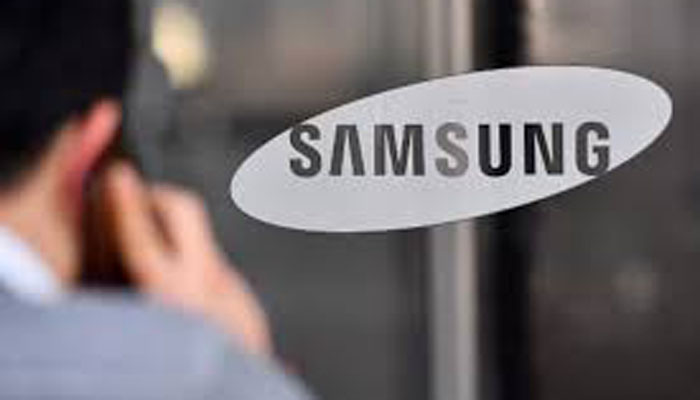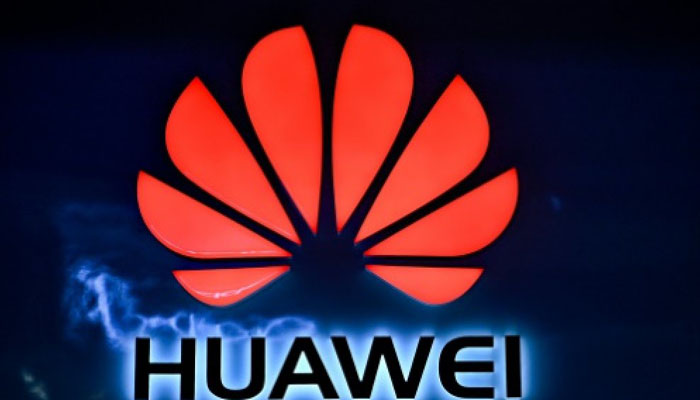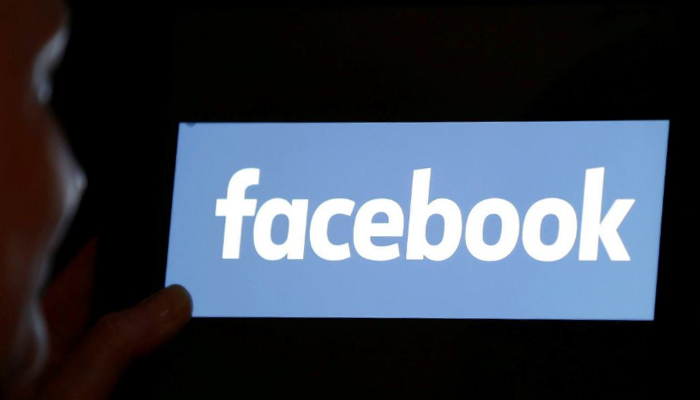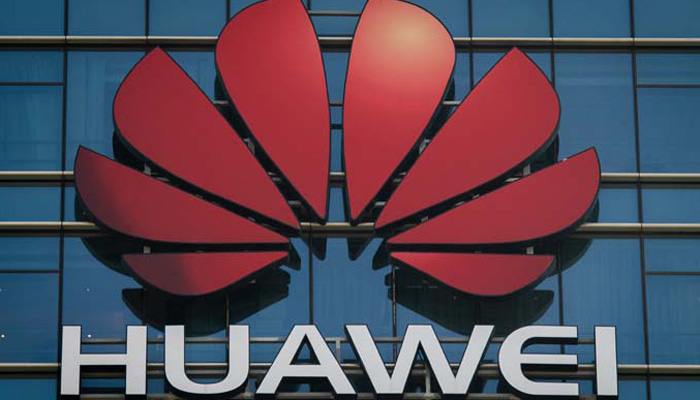Warning issued over attacks on internet infrastructure
Feb 23, 2019
Internet's global address keeper is warning of large-scale attacks threatening key parts of online infrastructure
Samsung bends over backwards to rev smartphone desire

Samsung on Wednesday is expected to unveil new flagship smartphones including one with a screen that can fold closed like a book as it seeks to boost the moribund market.
Much of what is in store at a Galaxy Unpacked event that the South Korean consumer electronics giant is hosting in San Francisco has been revealed in leaks, including a Galaxy 10 television commercial accidentally aired.
New Galaxy models will mark the tenth-anniversary of the line, and Samsung is to show off wireless ear buds.
However, the spotlight is likely to be commandeered by a handset with a bendable screen that would allow it to fold from tablet-sized to a smartphone form.
The innovation would be arriving on a global smartphone scene that has cooled as the devices become ubiquitous and buyers put off upgrading from models they own.
"The industry is in flat to declines and we´ve reached a saturation point of smartphones," said Moor Insights and Strategy principal analyst Patrick Moorhead.
"What Samsung needs to do, no different from Apple, is give people a reason to get rid of a phone that might be perfectly fine for something different."
The argument for a phone that can fold open to provide a larger screen is an easy one - buyers have shown a preference for "more real estate" to watch videos, play games, work, and more.
Samsung was mocked when it introduced large-screen Note phones, only to wind up giving rise to a "phablet" trend that rivals followed.
"I am expecting there to be trade-offs," Moorhead said of a Samsung foldable phone.
"You can´t take leading-edge technology and fold it, and have it not be thicker."
Along with perhaps being a bit clunky, a folding phone could come with a lofty price of $1,500 or so, but the point for Samsung is not to sell truckloads of the handsets but to establish a new category to kindle demand in a global market devoid of growth, according to the analyst.
"Samsung always does better when they have something that Apple doesn´t have that is valuable to consumers," Moorhead said.
"This is Samsung´s opportunity to take some premium market share from Apple."
Google on board
Apple has revealed no sign of pursuing folding screens for iPhones. The Cupertino-based company has stressed efforts to ramp up sales of digital content and services to devotees of its devices.
"I do believe Apple will have a foldable screen at some point, but will wait until they perfect the experience," Moorhead said.
Google has made it clear that it is working to adapt its free Android mobile operating system to Samsung´s folding screens so video, apps, and more perform as desired when displays change sizes.
The incentive for Samsung and Google goes beyond what is shown off at Unpacked.
While Samsung is the top smartphone maker in the world, the company makes a lot of money selling components such as screens and chips to other consumer electronics companies.
Igniting a folding-screen craze in smartphones would make Samsung a natural prime supplier of such displays.
Android software is the most widely used mobile operating system, giving Google incentive to ride a folding phone wave.
Samsung is opening three US retail stores to promote its Galaxy line of smartphones.
The move ramps up Samsung´s efforts to compete on the home turf of Apple, which has hundreds of retail outlets in the US and around the world.
Samsung remained the number one global handset maker with a 20.8 percent share in 2018 despite an eight percent sales slump for the year, according to research firm IDC -- which said last year showed the worst overall decline in sales for the smartphone sector.
Still, analysts don´t see the sun setting any time soon on the smartphone era, seen as a must-have device for many people around the world.
"Mobile phones are here to stay," said Gartner analyst Werner Goertz said, while suggesting that consumers may be waiting for radical innovation in handsets.
"Foldable phones would represent a really nice disruptive feature," he said.
GlobalData research director Avi Greengart believes foldable phones will be a big trend this year.
He was among analysts that expected the challenge to folding smartphones to be on the software side, not with the displays, since applications will have to be designed to adapt to going from phone to tablet screen sizes.
Huawei's founder says world can't live without it

The founder of Chinese telecom giant Huawei has hit back at US efforts to blacklist the company, saying defiantly that the world cannot do without Huawei and its "more advanced" technology.
"There´s no way the US can crush us," Ren Zhengfei said in an interview with the BBC.
"The world cannot leave us because we are more advanced."
Ren, 74, also denounced as "politically motivated" the December arrest of his daughter, Huawei Chief Financial Officer Meng Wanzhou, who is accused of violating US sanctions against Iran.
"We object to this," he said.
"But now that we´ve gone down this path, we´ll let the courts settle it."
The normally media-shy Huawei founder has been forced to step into the limelight in recent months as the company has come under increasing pressure over espionage concerns and the US-led campaign to persuade other countries to ban its technology.
Last year, security concerns prompted Australia to ban Huawei equipment from its future 5G network.
New Zealand has also blocked its largest telecom carrier from using Huawei technology for the next generation network, while the Czech Republic has reportedly excluded it from a 20-million-euro ($22 million) tender to build a tax portal.
US prosecutors also are charging Huawei with stealing trade secrets, saying it offered rewards to employees for stealing technology from other rivals.
Ren shrugged off the growing pressure.
"If the lights go out in the West, the East will still shine," he said. "America doesn´t represent the world."
"Even if they persuade more countries not to use us temporarily, we can always downsize and become smaller."
Facebook needs independent ethical oversight: UK lawmakers

LONDON: Facebook and other big tech companies should be subject to a compulsory code of ethics to tackle the spread of fake news, the abuse of users’ data and the bullying of smaller firms, British lawmakers said on Monday.
In a damning report that singled out Facebook chief executive Mark Zuckerberg for what it said was a failure of leadership and personal responsibility, the UK parliament’s Digital, Culture, Media and Sport Committee said the companies had proved ineffective in stopping harmful content and disinformation on their platforms.
“The guiding principle of the ‘move fast and break things’ culture often seems to be that it is better to apologise than ask permission,” committee chairman Damian Collins said.
“We need a radical shift in the balance of power between the platforms and the people.”
Collins said the age of inadequate self-regulation must come to an end.
“The rights of the citizen need to be established in statute, by requiring the tech companies to adhere to a code of conduct written into law by Parliament, and overseen by an independent regulator,” he said.
Facebook became the focus of the committee’s 18-month inquiry after whistleblower Christopher Wylie alleged that political consultancy Cambridge Analytica had obtained the data of millions of users of the social network.
Zuckerberg apologised last year for a “breach of trust” over the scandal.
But he refused to appear three times before British lawmakers, a stance that showed “contempt” toward parliament and the members of nine legislatures from around the world, the committee said.
“We believe that in its evidence to the committee Facebook has often deliberately sought to frustrate our work, by giving incomplete, disingenuous and at times misleading answers to our questions,” Collins said.
“Mark Zuckerberg continually fails to show the levels of leadership and personal responsibility that should be expected from someone who sits at the top of one of the world’s biggest companies.”
The lawmaker identified major threats to society from the dominance of tech companies such as Facebook — which also owns WhatsApp and Instagram — Google and Twitter.
Democracy was at risk from the malicious and relentless targeting of citizens with disinformation and personalised adverts from unidentifiable sources, they said, and social media platforms were failing to act against harmful content and respect the privacy of users.
Companies like Facebook were also using their size to bully smaller firms that relied on social media platforms to reach customers, it added.
Under fire Huawei and foldable screens in focus at top mobile fair

Phone makers will focus on foldable screens and the introduction of blazing fast 5G wireless networks at the world´s biggest mobile fair starting Monday in Spain as they try to reverse a decline in sales of smartphones.
Huawei will also be in the spotlight at the four-day Mobile World Congress (MWC) in Barcelona as the Chinese telecom giant fights US efforts to persuade its allies not to use the company´s technology to build their 5G networks due to concerns that its gear could facilitate Chinese spying.
The firm is the leading manufacturer of equipment for the fifth-generation cellular networks which operators are starting to install. The technology — known as 5G — will bring near-instantaneous connectivity for smartphones and devices from automobiles to robots.
"This year we are going to see real 5G ready launches happening in different countries and the focus will be on where, when, how and what are the consumer benefits going to be of 5G in 2019," said Ian Fogg, a mobile industry analyst at OpenSignal, which collects and analyses data from mobile networks.
Huawei and other firms are scheduled to carry out 5G smartphone demos at the fair even though the next generation wireless network will not be widely available for several more years.
Samsung, the world´s biggest seller of smartphones, unveiled a handset that folds open to be a tablet on Wednesday in San Francisco, becoming the first major manufacturer to offer the long-awaited feature.
China´s Xiaomi and several other firms are expected to follow Samsung´s lead and present foldable devices of their own in Barcelona although it was not clear if they would be prototypes or commercially available devices such as Samsung´s.
'Consumer frustration'
Foldable phones come as handset makers are scrambling to introduce new features to attract customers.
Global smartphone sales fell 4.1 percent in 2018 to a total of 1.4 billion units due to an economic slowdown in China, which consumes about one-third of the world´s phones, and a lack of major innovations that encourage people to upgrade their devices, according to research firm IDC.
Sales fell by 0.5 percent in 2017 for a first annual decline.
"People have been holding on to their phones longer. A lot of it is consumer frustration that devices aren´t changing a tonne and prices keep going up," said senior IDC research analyst Ryan Reith.
Apple as usual will not be present at the show and Huawei this year will present its new flagship at an event in Paris in March instead of at the fair.
With the three biggest smartphone makers not unveiling new devices in Barcelona, the rest of the industry will have a rare opportunity to grab the spotlight at the fair.
Huawei opportunity?
Huawei received a boost in its battle to ease concerns over its technology in the lead up to the congress after the Financial Times reported on Monday that British intelligence has concluded security risks posed by using equipment made by the firm can be managed.
And mobile communications industry body GSMA, which organises the fair, urged European governments not to ban Huawei from helping to build their 5G networks.
Australia, New Zealand and Japan have followed Washington´s call for a Huawei ban, but the picture in Europe is more nuanced, not least because Huawei´s 5G capabilities are ahead of those of its rivals, analysts say.
Major countries such as Germany fear banning the Chinese firm would cause a considerable setback in Europe´s efforts to deploy 5G and stay competitive in communications.
The fair will be an opportunity for the Chinese firm "to show that it is continuing to do their work, that it´s still innovating, and that it does things well differently from its competitors," said Dexter Thillien, an analyst at Fitch Solutions.
Mission complete: NASA announces demise of Opportunity rover

During 14 years of intrepid exploration across Mars, it advanced human knowledge by confirming that water once flowed on the red planet — but NASA's Opportunity rover has analysed its last soil sample.
The robot has been missing since the US space agency lost contact during a dust storm in June last year and was declared officially dead Wednesday, ending one of the most fruitful missions in the history of space exploration.
Unable to recharge its batteries, Opportunity left hundreds of messages from Earth unanswered over the months, and NASA said it made its last attempt at contact Tuesday evening.
"I declare the Opportunity mission as complete," Thomas Zurbuchen, associate administrator of NASA's Science Mission Directorate told a news conference at mission headquarters in Pasadena, California.
The community of researchers and engineers involved in the program were in mourning over the passing of the rover, known affectionately as Oppy.
"It is a hard day," said John Callas, manager of the Mars Exploration Rover project.
"Even though it is a machine and we're saying goodbye, it's very hard and it's very poignant."
"Spent the evening at JPL as the last ever commands were sent to the Opportunity rover on #Mars," Tanya Harrison, director of Martian research at Arizona State University, tweeted after a stint at Pasadena's Jet Propulsion Laboratory.
"There was silence. There were tears. There were hugs. There were memories and laughs shared. #ThankYouOppy #GoodnightOppy," she wrote.
The nostalgia extended across the generations of scientists who have handled the plucky little adventurer.
"Godspeed, Opportunity," tweeted Keri Bean, who had the "privilege" of sending the final message to the robot.
"Hail to the Queen of Mars," added Mike Seibert, Opportunity's former flight director and rover driver in another tweet, while Frank Hartman, who piloted Oppy, told AFP he felt "greatly honored to have been a small part of it."
"Engulfed by a giant planet-encircling dust storm: Is there a more fitting end for a mission as perfect and courageous from start to finish as Opportunity?" he said.
The program has had an extraordinary record of success: 28.1 miles (45.2 kilometers) traversed, more than the Soviet Union's Lunokhod 2 moon rover during the 1970s and more than the rover that US astronauts took to the moon on the Apollo 17 mission in 1972.
"It is because of trailblazing missions such as Opportunity that there will come a day when our brave astronauts walk on the surface of Mars," NASA Administrator Jim Bridenstine said in a statement.
Opportunity sent back 217,594 images from Mars, all of which were made available on the internet.
Human-like perspective
"For the public, the big change was that Mars became a dynamic place, and it was a place that you could explore every day," Emily Lakdawalla, an expert on space exploration and senior editor at The Planetary Society.
"The fact that this rover was so mobile, it seemed like an animate creature," she said. "Plus it has this perspective on the Martian surface that's very human-like."
"It really felt like an avatar for humanity traveling across the surface," she added.
Opportunity landed on an immense plain and spent half its life there, traversing flat expanses and once getting stuck in a sand dune for several weeks. It was there, using geological instruments, that it confirmed that liquid water was once present on Mars.
During the second part of its life on Mars, Opportunity climbed to the edge of the crater Endeavour, taking spectacular panoramic images — and discovering veins of gypsum, additional proof that water once flowed among the Martian rocks.
Opportunity's twin, Spirit, landed three weeks ahead of it, and was active until it expired in 2010. The two far exceeded the goals of their creators: In theory, their missions were supposed to last 90 days.
Today, only a single rover is still active on Mars, Curiosity, which arrived in 2012. It is powered not by the sun, but by a small nuclear reactor.
In 2021, the recently named Rosalind Franklin robot, part of the European-Russian ExoMars mission, is slated to land on a different part of the planet, raising the population of active rovers to two.





0 Comments